- Home
- Timothy Zahn
Night Train to Rigel
Night Train to Rigel Read online
NIGHT TRAIN TO RIGEL
TIMOTHY ZAHN
For
Pastor Rick House—
who has helped keep me
on the rails
Table of Contents
ONE
TWO
THREE
FOUR
FIVE
SIX
SEVEN
EIGHT
NINE
TEN
ELEVEN
TWELVE
THIRTEEN
FOURTEEN
FIFTEEN
SIXTEEN
SEVENTEEN
EIGHTEEN
NINETEEN
TWENTY
TWENTY-ONE
TWENTY-TWO
TWENTY-THREE
TWENTY-FOUR
TWENTY-FIVE
ONE
He was leaning against the side of an autocab by the curb as I walked through the door and atmosphere curtain of the New Pallas Towers into the chilly Manhattan night air. He was short and thin, with no facial hair, and wore a dark brown overcoat with a lighter brown shirt and slacks beneath it. Probably no more than seventeen or eighteen years old, I estimated, me sort of person you wouldn’t normally give a second look to if you passed him on the walkway.
Which was why I gave him a very careful second look as I headed down the imported Belldic marble steps toward street level. I had no doubt there were plenty of nondescript people wandering the streets of New York this December evening, but their proper place was the nondescript parts of the city, not here in the habitats of the rich and powerful. There was already one person out of his proper social position in this neighborhood—me—and it would be unreasonable to expect two such exceptions at the same place at the same time.
He watched me silently from beneath droopy eyelids, his arms folded across his chest, his hands hidden from view. A beggar or mugger should be moving toward me at this point, I knew, while an honest citizen would be politely stepping out of my way. This character was doing neither. I found myself studying those folded arms, wondering what he might have in his hands and wishing mightily that Western Alliance Intelligence hadn’t revoked my carry permit when they’d cashiered me fourteen months earlier.
I was within three steps of the kid when he finally stirred, his half-lidded eyes opening, his forehead creasing in concentration. “Frank Compton,” he said in a gravelly voice.
It had been a statement, not a question. “That’s right,” I confirmed. “Do I know you?”
A half smile touched his lips as he unfolded his arms. I tensed, but both hands were empty. His left hand dropped limply to his side; his right floundered a bit and then found its way into his overcoat’s side pocket.
It was still there as he slid almost leisurely off the side of the autocab and crumpled into a heap on the sidewalk, his eyes staring unseeingly into the night sky.
And with the streetlights now shining more directly on him, I could see that his coat was wet in half a dozen places.
I dropped to a crouch beside the body and looked around. A kid with this many holes in him couldn’t have traveled very far, and whoever had done this to him might be waiting to add a second trophy to the evening’s hit list. But there were no loitering pedestrians or suspicious parked vehicles that I could see. Trying not to think about rooftop assassins with hypersonic rifles and electronic targeting systems, I turned my attention to the kid himself.
Three of the bloodstains were over the pinprick-sized holes of snoozer loads, the kind used by police and private security services when they want to stop someone without using deadly force. The remaining wounds were the much larger caliber of thudwumpers, the next tier of seriousness in the modern urban hunter’s arsenal.
The tier beyond that would have been military-class shredders. I was just as glad the attacker hadn’t made it to that level.
Carefully, I reached past his limp hand into his overcoat pocket and poked around. There was nothing there but a thin plastic folder of the sort used for carrying credit tags or cash sticks. I pulled it out, angled it toward the marquee light from the New Pallas behind me, and flipped it open.
There was a single item inside: a shimmery copper-edged ticket for a seat on Trans-Galactic Quadrail Number 339216, due to depart Terra Station at 7:55 P.M. on December 27, 2084, seven days away. The travel designation was third class, the seat listed was number twenty-two in car fifteen.
The destination was the Rigel star system and the Earth colony of Yandro.
Yandro, the fourth and final colony in the United Nations Directorate’s grand scheme to turn humanity into a true interstellar species and bring us into social equality with the eleven genuine empires stretching across the galaxy. Yandro, a planet that had been a complete and utter drain on Sol’s resources ever since the first colonists had set out ten years ago with the kind of media whoop usually reserved for pop culture stars.
Yandro, the reason I’d been kicked out of Western Alliance Intelligence in the first place.
I looked at the dead face still pointed skyward. I have a pretty good memory for faces, but this one still wasn’t ringing any bells. Shifting my attention back to the ticket, I skipped down to the passenger information section at the bottom.
And found myself looking at a digitized photo of myself.
I stared at it, the back of my neck starting to tingle. The photo was mine, the name and ID number printed below it were mine, and if the thumbprint wasn’t mine it was a damn close copy.
Long experience had taught me that it wasn’t a good idea to be caught in the vicinity of a dead body, especially one as freshly dead as this. I took a minute anyway to go through the kid’s other pockets.
It was a waste of a perfectly good minute. He had no ID, no credit tags, no handkerchief, no pocketknife, no unpaid bills, no letters from home. Besides the ticket folder, all he had was a single cash stick with a hundred ninety dollars left on it.
From behind me came the sound of chattering voices, and I turned to see a party of four impeccably dressed young people emerging from the New Pallas for a night on the town. Casually, I stood up and stepped past the crumpled figure, heading down the street as quickly as I could without looking obvious about it. The movers and shakers who lived in this part of the city did occasionally have to deal with the distasteful business of death, but it was always done in the most genteel and civilized manner, which meant they had genteel and civilized thugs on the payroll to do it for them. I doubted that any of me theater-bound party tripping lightly down the steps had ever even seen a dead body before, and they were likely to make a serious commotion when they finally spotted him. I intended to be well on my way to elsewhere when that happened.
I’d made it to the end of the block, and had turned the corner, when something made me pause and look back.
There was a figure standing in front of the body. A slim, nondescript figure, his shoulders hunched and his head forward, clearly leaning over for a close look at the dearly departed. With the distance and the restless shadows thrown by the streetlights, I couldn’t make out his face. But his body language wasn’t that of someone horribly shocked or panicked. Apparently, dead bodies weren’t anything new to him.
And as I watched, he straightened up and turned to look in my direction.
With a supreme act of will, I forced my feet not to break into a full-fledged sprint, but to continue with my original brisk stroll. The man made no move toward me, but merely watched until I’d moved out of sight around the side of the corner building.
I walked two more blocks, just to be on the safe side. Then, as the wail of sirens began to burn through the night, I flagged down an autocab.
“Good evening,” the computerized voice said as I climbed in. “D
estination, please?”
I looked at the folder still gripped in my hand. Seven days until me train listed on the ticket. Slightly less than a seven-day flight from Earth to the Quadrail station sitting in the outer solar system near Jupiter’s orbit. If I was going to catch that train, I was going to have to leave right now.
Awkward, and very spur-of-the-moment. But in some ways, it could actually work out to my advantage. I’d been planning on taking the Quadrail out into the galaxy sometime in the next couple of weeks anyway, buying my ticket with the brand-new credit tag in my pocket. This way, I could at least begin the trip on someone else’s dollar.
Only I hadn’t intended on heading out quite this soon. And I hadn’t intended on beginning my journey at any of Earth’s pitiful handful of frontierland colony worlds.
I certainly hadn’t intended to leave with a dead body behind me.
But someone had gone to a great deal of trouble and expense to buy me a ticket to Yandro. Someone else had given his life to get that ticket into my hands.
And someone else had apparently been equally determined to prevent that ticket from reaching me.
“Destination, please?”
I dropped the folder into my pocket and pulled out my cash stick, wishing I’d taken the dead kid’s stick when I’d had the chance. My credit tag contained an embarrassment of riches, but tag transactions were traceable. Cash stick ones weren’t. “Grand and Mercer,” I told the cab, plugging the stick into the payment jack. Fifteen minutes at my apartment to get packed, another autocab ride to Sutherlin Sky-port, and I should be able to catch the next flight for Luna and the Quadrail station. If the torchliners were running on time this week, I should make it with a few hours to spare.
“Thank you,” the cab said, and pulled smoothly away into the traffic flow.
The moonroof was open, and as we headed south along Seventh Avenue I found myself gazing at the few stars I could see through the glow of the city lights. I found the distinctive trio of Orion’s belt and lowered my gaze to the star Rigel at the Hunter’s knee, wondering if our own sun was even visible from Yandro.
I didn’t know. But it looked like I was going to have the chance to find out.
TWO
“Attention, please,” the soothing voice called over the restaurant loudspeakers. “Quadrail Number 339216 will be arriving from Helvanti and the Bellidosh Estates-General in one hour. All passengers for New Tigris, Yandro, the Jurian Collective, and the Cimmal Republic please assemble in the Green debarkation lounge. Attention please…”
The voice ran through the message once more in English, then switched over to Juric and then Mahee. Finishing the last two bites of my burger, I wiped my hands and poked my cash stick into the jack on the bar in front of me. Most of the restaurant’s other customers were staying put, I noted, apparently booked on later trains. Sliding off my stool, I activated the leash button fastened inside my coat and my two ancient carrybags rolled out from beneath the counter.
They’d made it about two meters when one of the motors in the larger one seized up and started it rolling in circles. Swearing under my breath, I shut off the leash and scooped the bags up by their handles, hoping no one had noticed. There were few things more ridiculous looking than misfiring luggage, and few things more pathetic than an owner too lazy or too poor to get it fixed. Slinging the larger bag’s strap over my shoulder, trying to look like I was just carrying them for the exercise, I headed for the door.
I was halfway there when I saw The Girl get up from one of the booths and join the trickle of exiting patrons, her own single carrybag trailing obediently behind her.
I’d first spotted her at Sutherlin Skyport as we’d gotten on the Luna flight together, her third-class seat five rows up from mine. She’d been hovering at the edges of my attention ever since, through three separate flights and two different transfer stations.
Now, it seemed, she was also going to be traveling on my Quadrail.
The fact that we’d spent a week on the same space vessels was no big deal in and of itself, of course. There was only one practical set of scheduled flight connections between the Atlantic side of the Western Alliance and the Quadrail transfer station. Anyone who had decided to take a trip to the stars within a three- or four-day window had no choice but to fly with me.
My problem was that The Girl didn’t seem to fit any of the standard passenger profiles. I hadn’t seen her mingle with any of the other travelers, or even speak to the attendants except on business. Space travel had its share of the shy and the aloof and the just plain oblivious, but most of those eventually gravitated to one activity or another aboard ship, even if it was just to wrap themselves in a cocoon of stargazing silence in one of the observation lounges. I’d made it a point to periodically wander through all the public areas of the torchliner, and I’d never seen The Girl outside her cabin except during meals or an occasional visit to one of the shops. She hadn’t even shown up for the shipboard Christmas celebration.
I gazed at her back now as we walked down the corridor toward the debarkation lounge, watching the light glint off her short, dark brown hair. She was about twenty-two, a decade younger than I was, with eyes that matched the color of her hair and the slender, trim figure of someone who exercised to keep in shape, as opposed to someone who did hard physical labor for a living. Her face was pretty enough, but there was a strange sort of distance to her eyes that was more than a little disconcerting. Possibly one reason I’d never seen anyone aboard the torchliner approach her more than once.
And there was one other peculiarity I’d noted during our flight: Never had I seen her pay for anything with a credit tag. With her, apparently, it was strictly cash sticks.
Of course, I wasn’t using anything but cash sticks, either. But I had good reasons for not wanting anyone to trace my recent movements. Not with the body I’d left back at the New Pallas Towers.
I wondered what reasons The Girl had.
The shuttle was already loading when our restaurant contingent arrived. I made my way inside, found a seat, and threw my bags up onto the safety-webbed conveyer that would carry them up to the roof luggage hatchway. Fifteen minutes later we undocked. Passing beneath the guns and missile ports of the Terran Confederation battle platform floating overhead like a brooding predator, we started across the final fifty-kilometer leg of our journey to the Quadrail station.
I gazed out the window as we approached, half listening to the murmurs and twitterings from the first-timers among us. The Quadrail Tube lay across the starscape straight ahead, a shiny metal cylinder stretching seemingly to infinity in both directions. Despite its sheen, it was strangely difficult to see until you were practically on top of it, which was probably why a hundred years of outer-system probes had drifted through the space around Jupiter without ever noticing this thing sitting just beyond its orbit.
The ends of the Tube were even harder to see, fading away in both directions as the whole thing receded into the strange hyperspace where most of it lay. There had been a few attempts to follow the cylinder out to those vanishing points, but no matter how far you went, the Tube seemed perfectly solid the whole way. A trans-optical illusion, the experts called it, a fancy way of saying they didn’t have the foggiest idea how it worked.
But then, as far as I knew, none of the other alien races who traveled the Quadrail knew how it worked, either. The Spiders who ran the system were the only ones in on the secret, and they weren’t talking.
The station itself was an extra-wide spot in me Tube, five kilometers long and two in diameter, with hatches of various sizes set in neat rows around its surface. Current theory held that it had to be built wider than the rest of the Tube in order to bring it more solidly into normal space. The more cynical view was that the Spiders had to do something to justify the trillion-dollar fee they charged to put a Quadrail station into a solar system.
Two of the smaller hatchways had passenger shuttles like ours already snugged up to them, ready to pic
k up incoming passengers. Another ten or twelve of the cargo hatches were similarly occupied, which meant there must be at least one freight train arriving soon as well. Cargo was the true economic backbone of the operation, of course, given that the Quadrail carried every gram of trade that passed among the galaxy’s thousands of inhabited star systems. Passenger transport was nice to have, but in the larger scheme of things I suspected all of us together barely registered as a footnote on the Spiders’ balance sheet.
Our shuttle eased past a drifting maintenance skiff and zeroed in on a hatch marked with bright lavender lights, rolling over to press its upper surface against the alien metal. There was a click of lockseals, and the shuttle’s dorsal hatch slid open. Sensing the presence of air against it, the station’s hatch irised open in response, and the passengers unfastened their restraints and floated their way into a civilized line at the ladder.
The information cards everyone received with their tickets emphasized the fact that, unlike the transfer station’s rotational pseudogravity or the Shorshic-style vectored force thrusters that everyone else in the galaxy used, the Tube’s system of artificial gravity began right at the inner edge of the entrance hatch. But there was always one idiot per shuttle who hadn’t bothered to read the directions. Ours was six people ahead of me, floating with brisk confidence up alongside the ladder and then abruptly changing direction as his head poked through the hatch and the Tube’s gravity grabbed him and shoved him straight back down again. On his next try, he made sure to hang on to the ladder the whole way up like he was supposed to.
And a minute later, for the first time in over two years, I was standing inside the greatest engineering feat the universe had ever known.
The station’s general layout was prosaic enough, and aside from the fact that it was built into the inside of a huge cylinder, it would have felt right at home beside any Earth-bound train or monorail yard. There were thirty sets of four-railed tracks spaced evenly around the surface, with groups of elegantly designed buildings set between them that functioned as service centers, maintenance facilities, restaurants, and waiting rooms for passengers transferring between different lines.

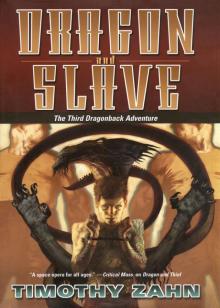 Dragonback 03 Dragon and Slave
Dragonback 03 Dragon and Slave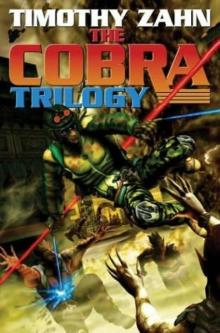 Cobra Bargain
Cobra Bargain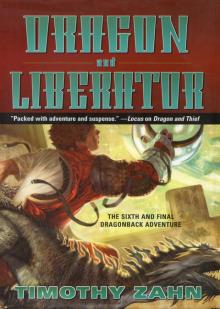 Dragonback 06 Dragon and Liberator
Dragonback 06 Dragon and Liberator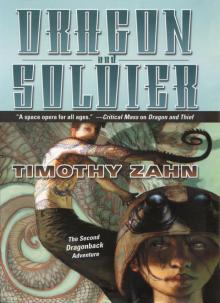 Dragonback 02 Dragon and Soldier
Dragonback 02 Dragon and Soldier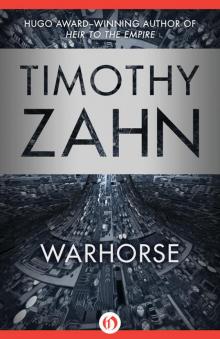 Warhorse
Warhorse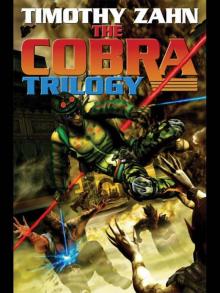 The Cobra Trilogy
The Cobra Trilogy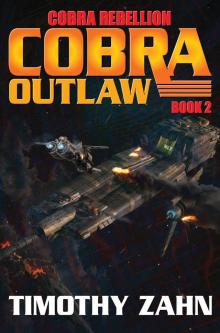 Cobra Outlaw - eARC
Cobra Outlaw - eARC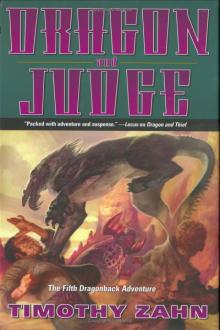 Dragon and Judge
Dragon and Judge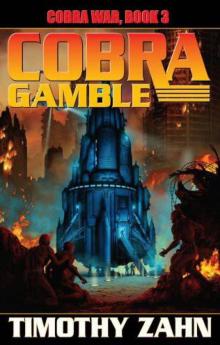 Cobra Gamble
Cobra Gamble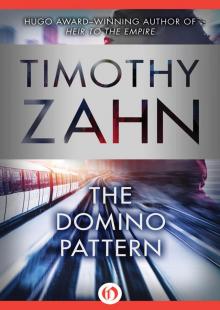 The Domino Pattern
The Domino Pattern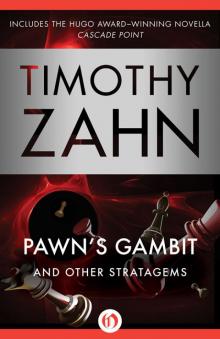 Pawn's Gambit: And Other Stratagems
Pawn's Gambit: And Other Stratagems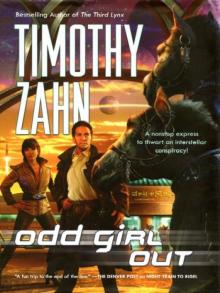 Odd Girl Out
Odd Girl Out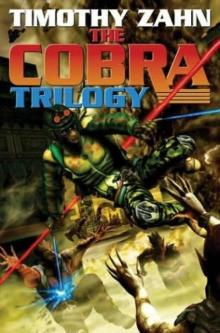 Cobra Strike
Cobra Strike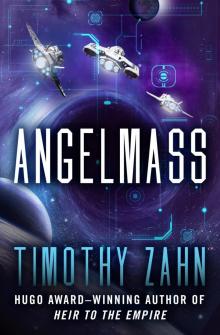 Angelmass
Angelmass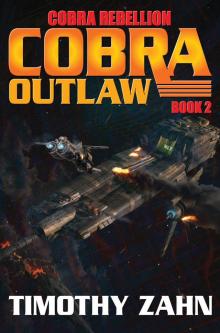 Cobra Outlaw
Cobra Outlaw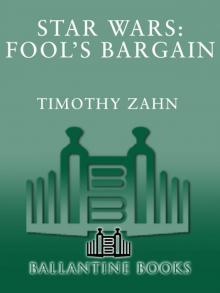 Heir to the Empire
Heir to the Empire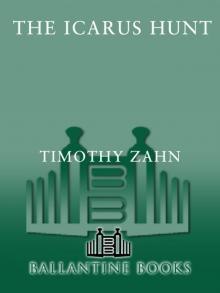 The Icarus Hunt
The Icarus Hunt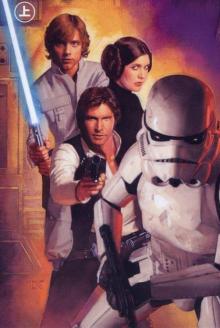 Star Wars - Thrawn Trilogy - The Last Command 03
Star Wars - Thrawn Trilogy - The Last Command 03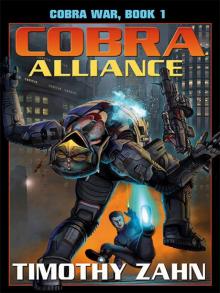 Cobra Alliance
Cobra Alliance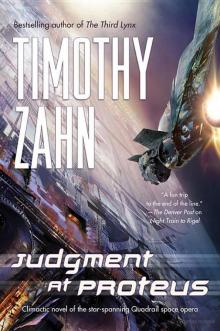 Judgment at Proteus
Judgment at Proteus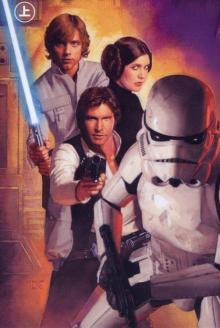 Star Wars - Thrawn Trilogy - Dark Force Rising 02
Star Wars - Thrawn Trilogy - Dark Force Rising 02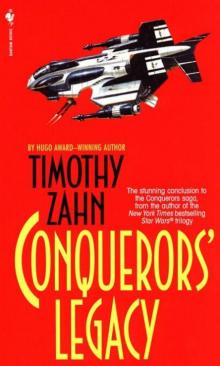 Conquerors' Legacy
Conquerors' Legacy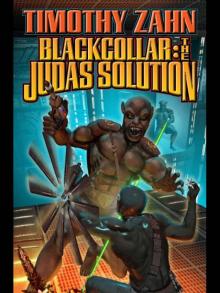 The Judas Solution
The Judas Solution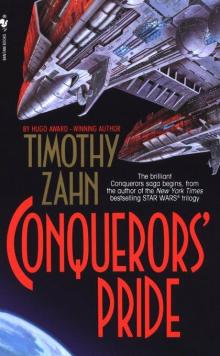 Conquerors' Pride
Conquerors' Pride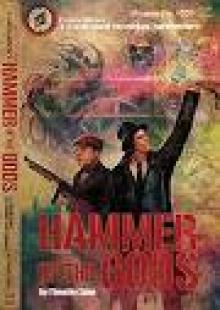 Hammer of the Gods
Hammer of the Gods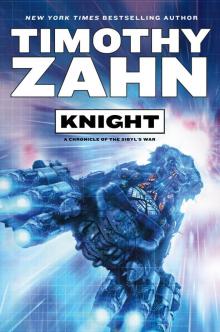 Knight
Knight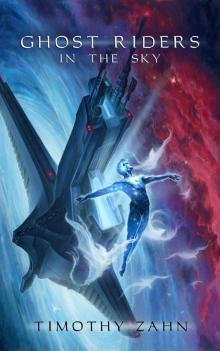 Ghost Riders in the Sky
Ghost Riders in the Sky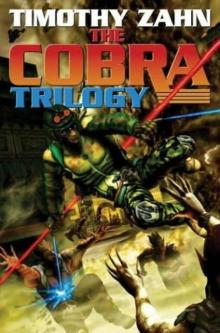 Cobra
Cobra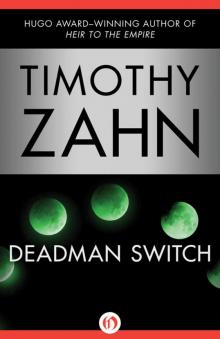 Deadman Switch
Deadman Switch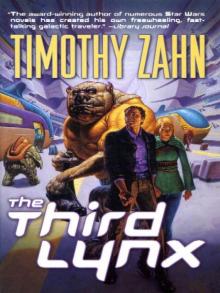 The Third Lynx
The Third Lynx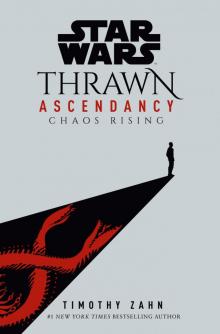 Chaos Rising
Chaos Rising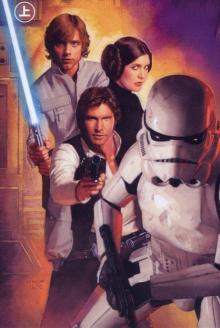 Star Wars - Thrawn Trilogy - Heir to the Empire 01
Star Wars - Thrawn Trilogy - Heir to the Empire 01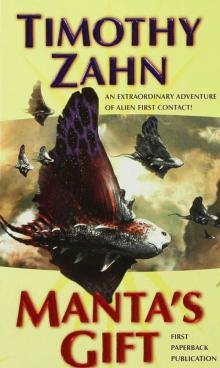 Manta's Gift
Manta's Gift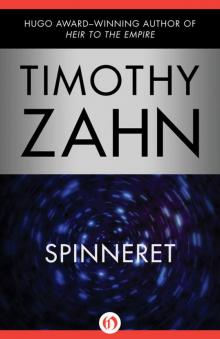 Spinneret
Spinneret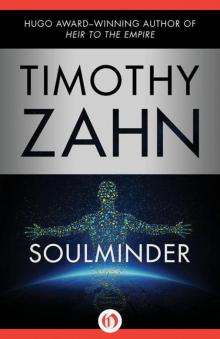 Soulminder
Soulminder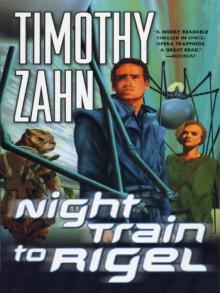 Night Train to Rigel
Night Train to Rigel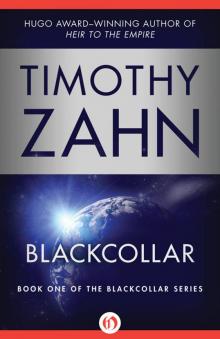 Blackcollar
Blackcollar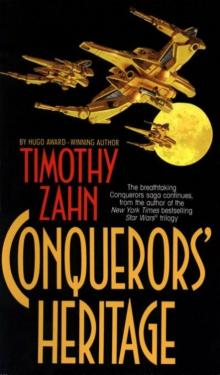 Conquerors' Heritage
Conquerors' Heritage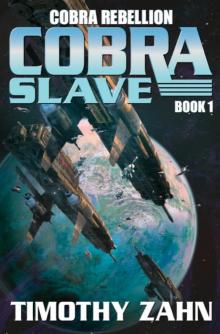 Cobra Slave
Cobra Slave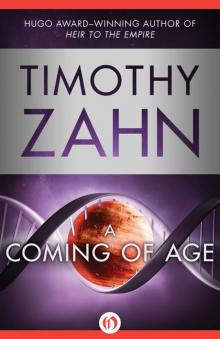 A Coming of Age
A Coming of Age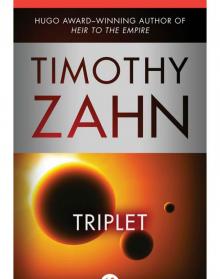 Triplet
Triplet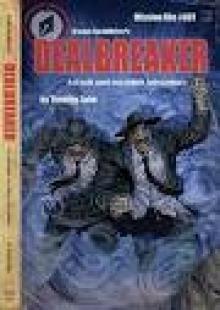 Dealbreaker
Dealbreaker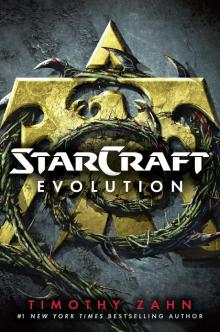 StarCraft
StarCraft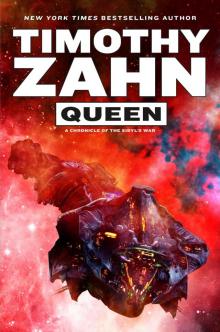 Queen
Queen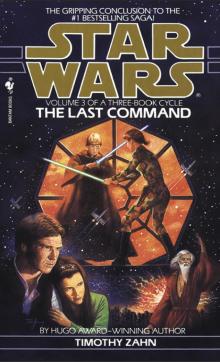 The Last Command
The Last Command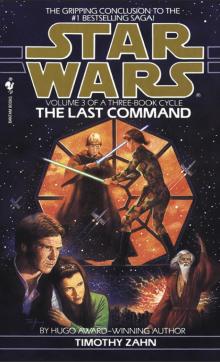 Star Wars: The Last Command
Star Wars: The Last Command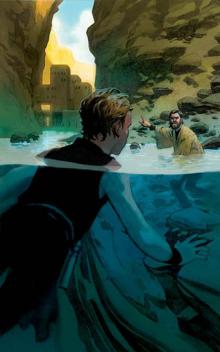 Star Wars Clone Wars: Changing Seasons
Star Wars Clone Wars: Changing Seasons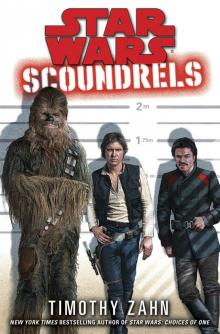 Scoundrels
Scoundrels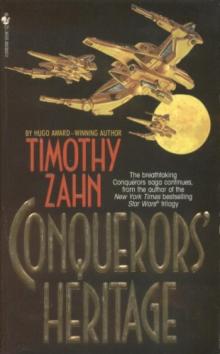 Conquerors 2 - Conquerors' Heritage
Conquerors 2 - Conquerors' Heritage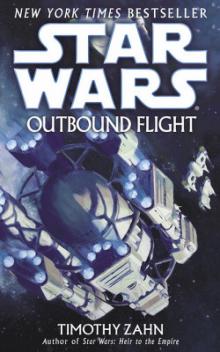 Outbound Flight (звёздные войны)
Outbound Flight (звёздные войны)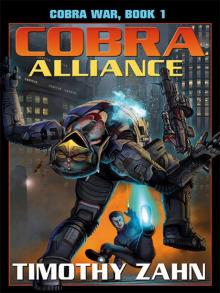 Cobra Alliance-Cobra War Book 1
Cobra Alliance-Cobra War Book 1 Hero of Cartao 2. Hero's Rise
Hero of Cartao 2. Hero's Rise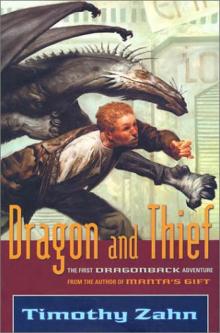 Dragon and Thief d-1
Dragon and Thief d-1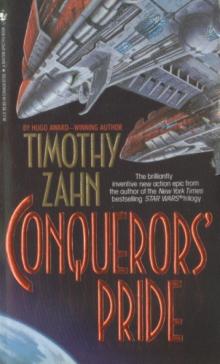 Conquerors 1 - Conquerors' Pride
Conquerors 1 - Conquerors' Pride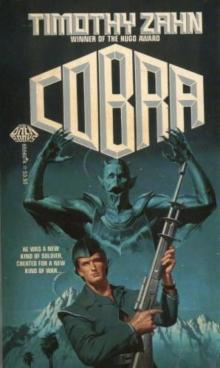 Cobra Alliance cw-1
Cobra Alliance cw-1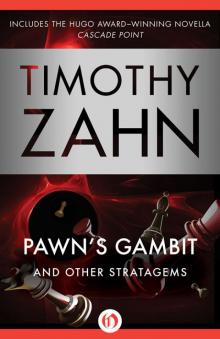 Pawn’s Gambit
Pawn’s Gambit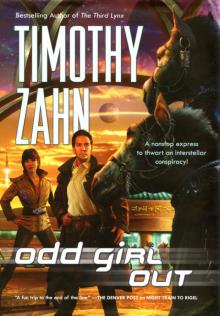 Odd Girl Out q-3
Odd Girl Out q-3 Dragon and Slave
Dragon and Slave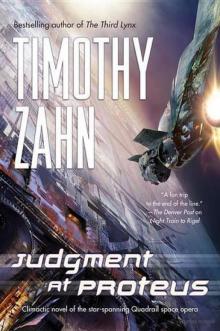 Judgment at Proteus q-5
Judgment at Proteus q-5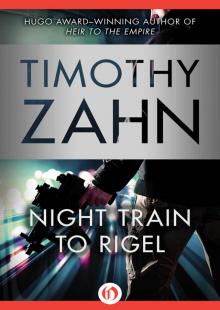 Night Train to Rigel (Quadrail Book 1)
Night Train to Rigel (Quadrail Book 1)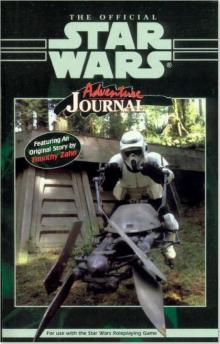 Star Wars: Adventure Journal 11: Command Decision
Star Wars: Adventure Journal 11: Command Decision Dragon And Soldier
Dragon And Soldier Hero of Cartao 3. Hero's End
Hero of Cartao 3. Hero's End For Love of Amanda
For Love of Amanda Distant Friends and Other Stories
Distant Friends and Other Stories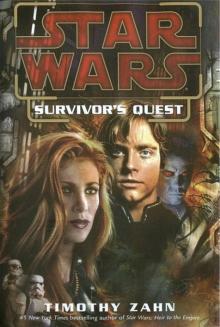 Star Wars: Survivor's Quest
Star Wars: Survivor's Quest Hero of Cartao 1. Hero's call
Hero of Cartao 1. Hero's call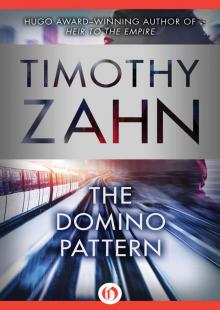 The Domino Pattern (Quadrail Book 4)
The Domino Pattern (Quadrail Book 4)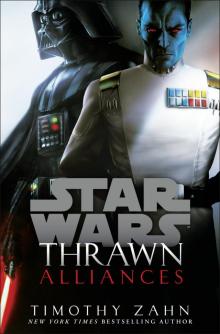 Thrawn_Alliances_Star Wars
Thrawn_Alliances_Star Wars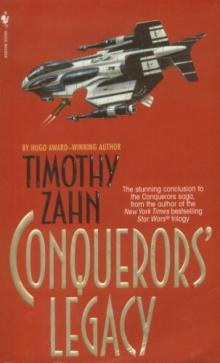 Conquerors 3 - Conquerors' Legacy
Conquerors 3 - Conquerors' Legacy The Blackcollar Series
The Blackcollar Series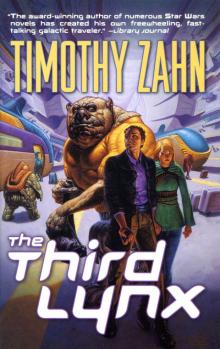 The Third Lynx q-2
The Third Lynx q-2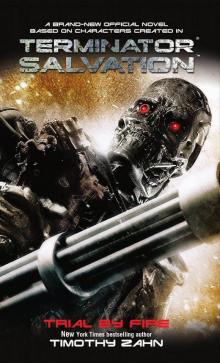 Terminator Salvation: Trial by Fire
Terminator Salvation: Trial by Fire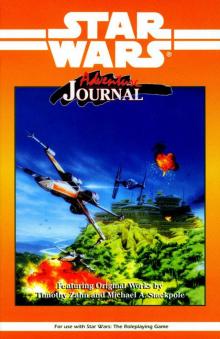 Star Wars - Mist Encounter
Star Wars - Mist Encounter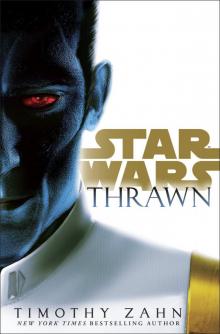 Thrawn
Thrawn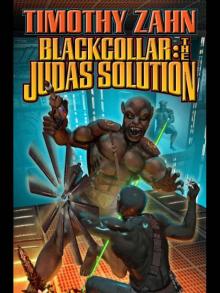 Blackcollar-The Judas Solution
Blackcollar-The Judas Solution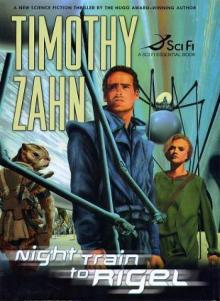 Night Train to Rigel q-1
Night Train to Rigel q-1 Cascade Point
Cascade Point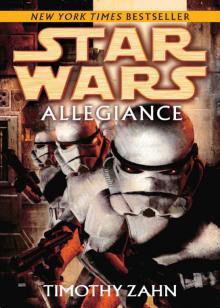 Allegiance
Allegiance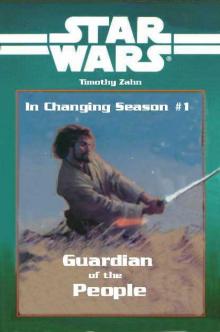 Star Wars - In Changing Season 1 - Guardian of the People
Star Wars - In Changing Season 1 - Guardian of the People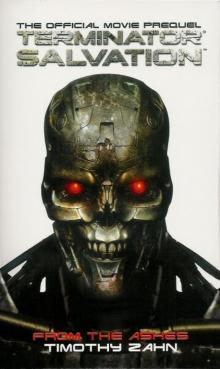 Terminator Salvation - From the Ashes ts-2
Terminator Salvation - From the Ashes ts-2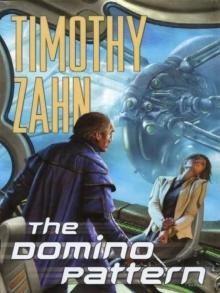 The Domino Pattern q-4
The Domino Pattern q-4 The Big Picture
The Big Picture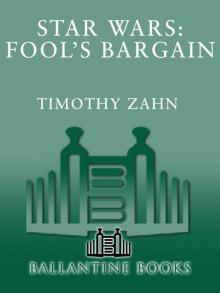 Star Wars: Fool's Bargain
Star Wars: Fool's Bargain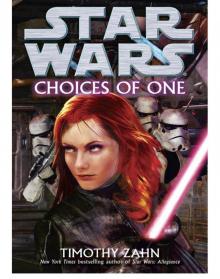 Star Wars: Choices of One
Star Wars: Choices of One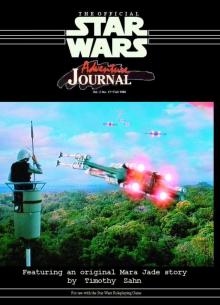 Star Wars - Jade Solitaire - Unpublished
Star Wars - Jade Solitaire - Unpublished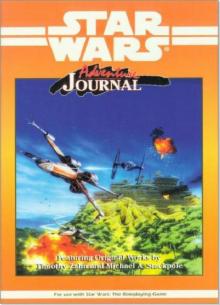 Star Wars: Adventure Journal: Mist Encounter
Star Wars: Adventure Journal: Mist Encounter Outbound Flight
Outbound Flight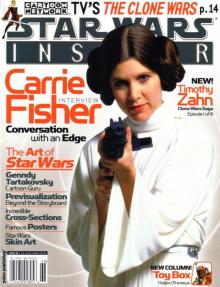 Star Wars - The Hero of Cartao - Part 1 - Hero's Call
Star Wars - The Hero of Cartao - Part 1 - Hero's Call Thrawn 1 - Specter of the Past
Thrawn 1 - Specter of the Past Survivor's Quest
Survivor's Quest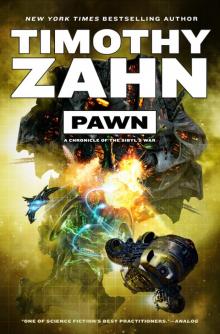 Pawn
Pawn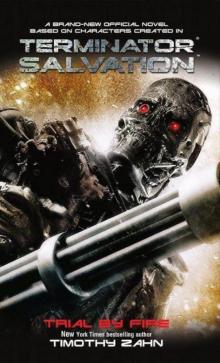 Trial By Fire ts-4
Trial By Fire ts-4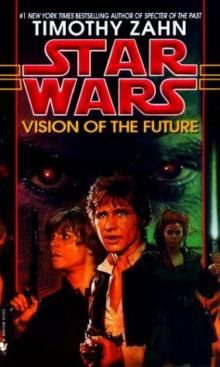 Vision of the future swhot-2
Vision of the future swhot-2 Star Song and Other Stories
Star Song and Other Stories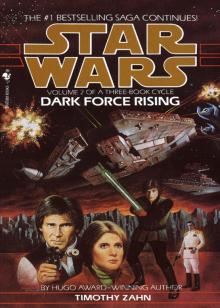 Dark Force Rising
Dark Force Rising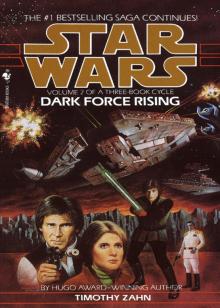 Star Wars: Dark Force Rising
Star Wars: Dark Force Rising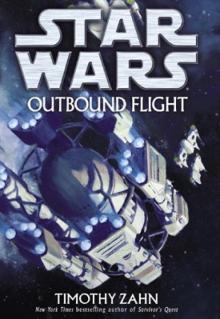 Star Wars - Outbound Flight
Star Wars - Outbound Flight Blackcollar: The Judas Solution
Blackcollar: The Judas Solution The Green And The Gray
The Green And The Gray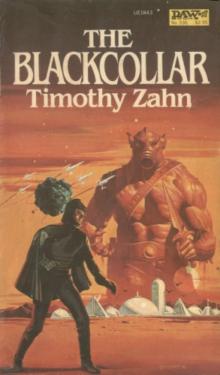 Blackcollar: The Blackcollar
Blackcollar: The Blackcollar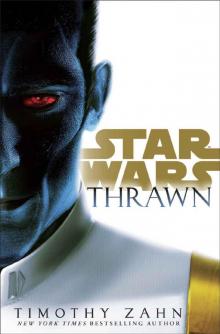 Star Wars_Thrawn
Star Wars_Thrawn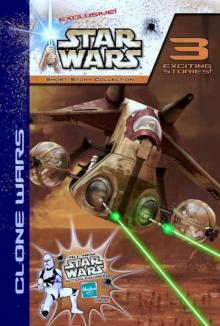 Star Wars - Duel
Star Wars - Duel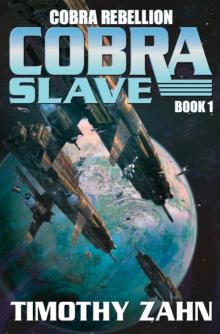 Cobra Slave-eARC
Cobra Slave-eARC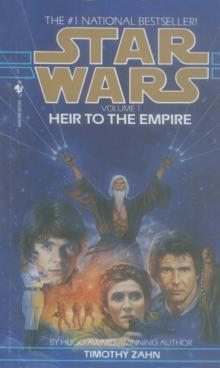 Star Wars: Heir to the Empire
Star Wars: Heir to the Empire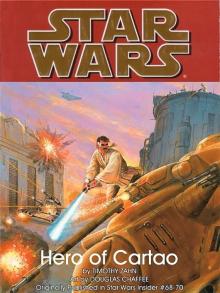 Star Wars: Clone Wars Stories: Hero of Cartao
Star Wars: Clone Wars Stories: Hero of Cartao The Bounty Hunter Wars 1 The Mandalorian Armor
The Bounty Hunter Wars 1 The Mandalorian Armor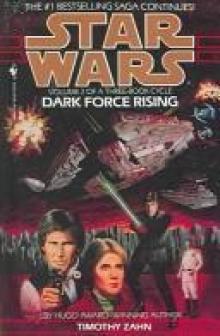 Dark Force Rising (Star Wars) swtt-2
Dark Force Rising (Star Wars) swtt-2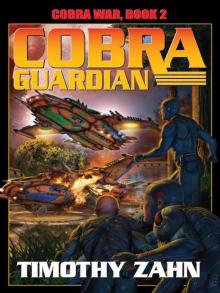 Cobra Guardian: Cobra War: Book Two
Cobra Guardian: Cobra War: Book Two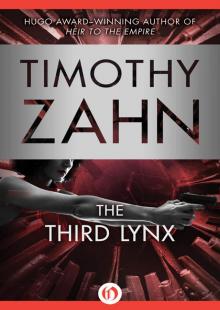 The Third Lynx (Quadrail Book 2)
The Third Lynx (Quadrail Book 2) Time Bomb And Zahndry Others
Time Bomb And Zahndry Others Blackcollar: The Backlash Mission
Blackcollar: The Backlash Mission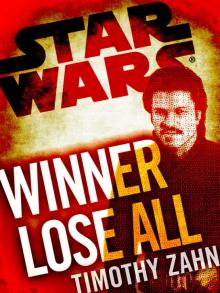 Winner Lose All--A Lando Calrissian Tale: Star Wars
Winner Lose All--A Lando Calrissian Tale: Star Wars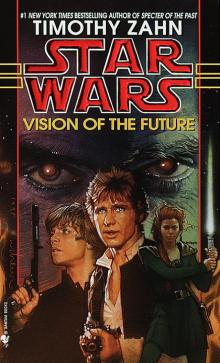 Star Wars: The Hand of Thrawn II: Vision of the Future
Star Wars: The Hand of Thrawn II: Vision of the Future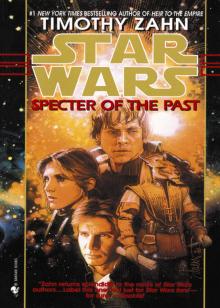 Specter of the Past
Specter of the Past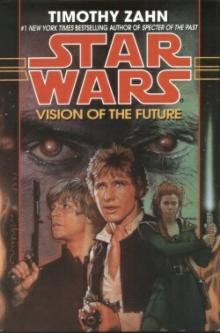 Star Wars - Hand of Thrawn 2 - Vision of the Future
Star Wars - Hand of Thrawn 2 - Vision of the Future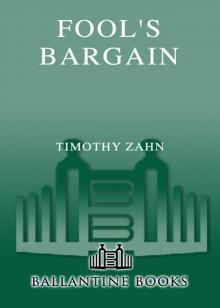 Fool's Bargain
Fool's Bargain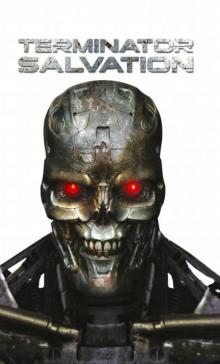 From the Ashes
From the Ashes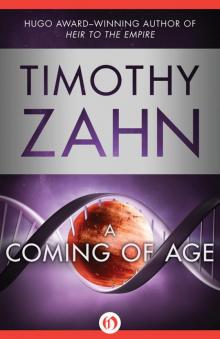 Coming of Age
Coming of Age